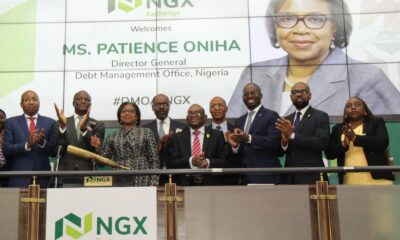Zenith Bank Plc has emerged as a frontrunner among Nigerian banks as restricted deposits grew to N17.1 trillion.
This increase was propelled by Central Bank of Nigeria (CBN) regulations and represents 72.7% growth from the N9.91 trillion recorded in the previous year.
The Central Bank of Nigeria, in its effort to regulate the country’s money supply and manage inflation levels, has maintained the Cash Reserve Ratio (CRR) at 32.5%.
The CRR mandates banks to retain a certain percentage of their customer deposits with the CBN, thereby restricting access to these funds for day-to-day operations.
Zenith Bank, along with nine other major banks including Access Holdings Plc, Guaranty Trust Holdings Company Plc (GTCO), and United Bank for Africa (UBA) Plc, witnessed a substantial increase in their restricted deposits.
This surge underscores the impact of regulatory measures on the banking sector’s liquidity and operational dynamics.
The CBN’s decision to uphold the CRR at 32.5% and subsequently increase it to 45.0% reflects its commitment to curbing inflationary pressures and maintaining financial stability. While these measures aim to regulate money supply and inflation, they also pose challenges for banks and shareholders.
A member of the CBN’s Monetary Policy Committee (MPC), Aku Odinkemelu, emphasized the necessity of tightening monetary policy measures to address inflationary pressures effectively.
However, concerns linger regarding the adverse effects on borrowing costs for businesses and the banking sector’s profitability.
Philip Ikeazor, Director-General of Financial System Stability and MPC member, highlighted the pivotal role of complementary tools such as the CRR in taming inflation and managing liquidity.
Despite apprehensions from stakeholders, the CBN Governor, Mr. Olayemi Cardoso, reiterated the importance of assertive monetary policy measures to achieve the medium-term inflation target.
Zenith Bank’s noteworthy performance in managing restricted deposits underscores its resilience and strategic approach amidst regulatory challenges.
The bank’s 133.8% increase in mandatory reserve deposits with the CBN, reaching N3.9 trillion in 2023, demonstrates its ability to adapt to evolving market conditions.
Access Holdings, UBA, and other major banks also reported substantial growth in their restricted deposits, reflecting the broader impact of CBN policies on the banking sector’s liquidity and profitability.
Despite the surge in restricted deposits, concerns persist among shareholders regarding the profitability and operational constraints faced by banks.
Boniface Okezie, Chairman of the Progressive Shareholders Association of Nigeria (PSAN), advocated for CBN to consider paying interest on mandatory funds collected from banks, thereby enhancing their earnings and supporting the real sector of the economy.
As Nigerian banks navigate the intricacies of regulatory requirements and market dynamics, Zenith Bank’s leadership in managing restricted deposits underscores its resilience and strategic acumen in an evolving financial landscape.


 Forex2 weeks ago
Forex2 weeks ago


 Naira1 week ago
Naira1 week ago
 Naira4 weeks ago
Naira4 weeks ago
 Company News4 weeks ago
Company News4 weeks ago




 Naira1 week ago
Naira1 week ago




 Naira3 weeks ago
Naira3 weeks ago
 Billionaire Watch1 week ago
Billionaire Watch1 week ago




 Naira6 days ago
Naira6 days ago





















